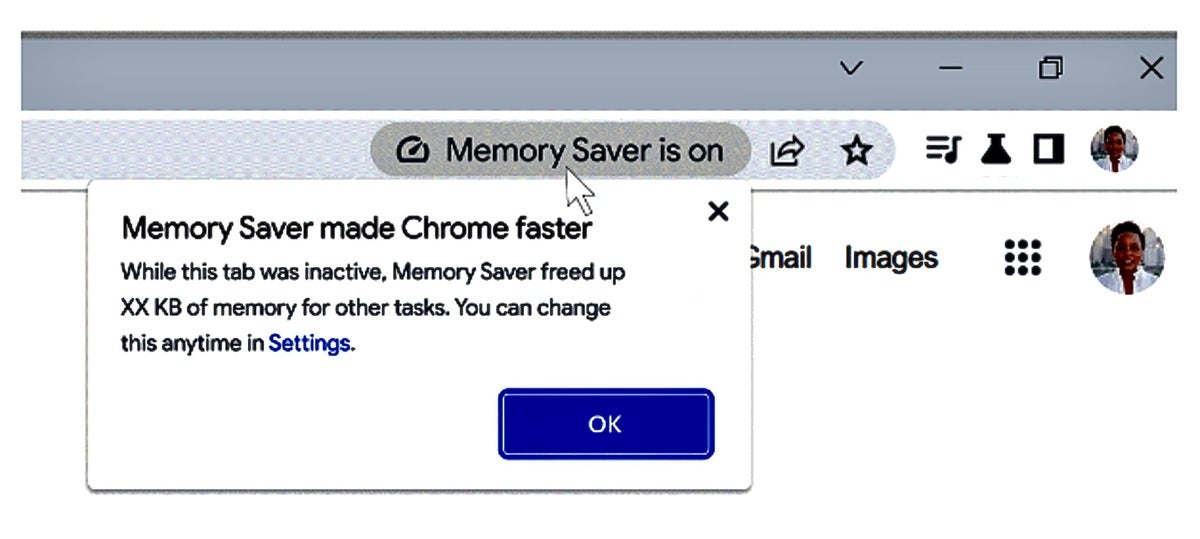































Google's Chrome browser has long been plagued by memory system-sucking issues - especially when multiple tabs are open - but the world's most popular browser today got an upgrade to optimize both device battery power and memory use.
With the latest release of Chrome on desktop, Google will be introducing two new performance settings: Memory Saver and Energy Saver. When they're used, Google said Chrome will consume up to 30% less memory and extend a device's battery when it's running low.
"We'll be rolling out both Memory Saver and Energy Saver modes over the next several weeks globally for Windows, macOS and ChromeOS," Mark Chang, group product manager for Chrome, wrote in a company blog.
When the new features arrive, they will run natively until users choose to turn them off manually or mark "important websites" to make them exempt from Memory Saver.
 Google
Google Chrome's Memory Saver mode can be manually turned off by accessing the three-dot menu at the top-right corner of the browser page.
Users can find the Memory Savor control tucked away under the three-dot menu in the upper right corner of a Chrome browser windows.
Chrome's overuse of system memory has in the past limited the amount available for other programs running on a computer or other device. The problems even led to Chrome struggling to cache information for quick access, which negates the use of the RAM in the first place.
"From the beginning, we designed Chrome for speed. But performance is more than just delivering a fast browsing experience," Chang wrote.
Becuase Google Chrome sandboxes browser processes, a user who opens Chrome with the Google search box there ends up with two Chrome processes running - each needing its own memory.
"Add another tab and you get three," Jerry Hildenbrand, a senior editor at AndroidCentral wrote in a post last year. "Add the 50 or so tabs you end up opening by the end of the night and you have 51, each running semi-independently from the other and each taking up system resources. That's only the beginning. Each extension starts another process. Chrome does some aggressive preloading of web pages so your internet browsing feels nice and snappy."
The problem results in Chrome eating megabytes of memory.
Google claims the new Memory Saver mode provides a smoother-running browser experience, even if you have "a bunch of tabs open...."
Memory Saver works by freeing up memory from tabs not currently being used by a system, so active websites get the memory resources first. "This is especially useful if you're running other intensive applications, like editing family videos or playing games. Any inactive tabs will be reloaded when you need them," Chang said.
 Google
Google Chrome's Energy Saver mode can be manually turned off.
Additionally, Chrome's new Energy Saver mode is designed to save battery power by limiting background activity and visual effects for websites with animations and videos. The Energy Saver mode activates when a device's battery level reaches 20% capacity, Google said.
 Etiquetas calientes:
Google Google Google Google Google Google Google Google Google Google Google Google Google Google
Navegadores web
Cromo de cromo
Etiquetas calientes:
Google Google Google Google Google Google Google Google Google Google Google Google Google Google
Navegadores web
Cromo de cromo